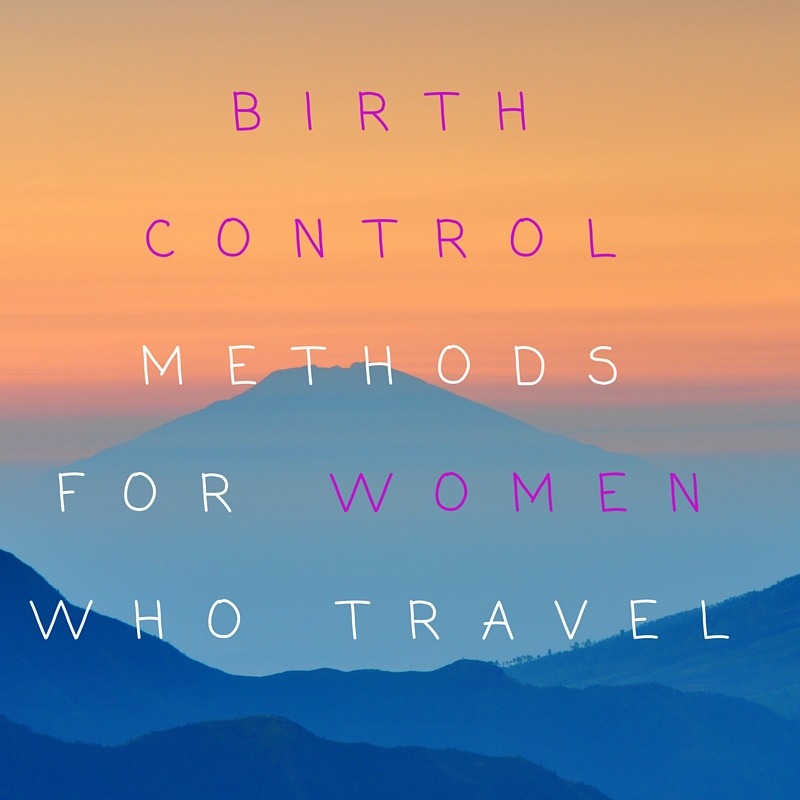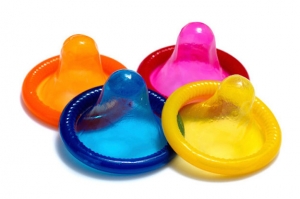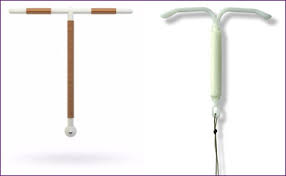Guys, this post about birth control methods really isn’t for you, though if you are curious about my thoughts or have women in your life you would like to share this information with please feel free!
Birth control is a very sensitive subject that ultimately comes back to the specific women in question and their needs. This post is not going to focus on specific scenarios or politics or religion, though obviously those all play a role in choosing whether or not to use birth control for whatever reason and what types might be worth considering. What this post is going to look at is different types of birth control available and some of the pros and cons of each from a traveler’s perspective.
Many of these methods of birth control are going to require that you speak with your healthcare provider about your options.
Condoms
Of all of the birth control methods on this list, condoms are the only one that will protect you from STDs. Regardless of whether you are otherwise protected against getting pregnant, you should always use a condom whether you are traveling or not. If you are in a committed relationship, this is the (almost) exception.
Pros
- Inexpensive
- Relatively easy to get
- Easy to carry around
- Protects against STDs
- Can be used in addition to other birth control methods
- Little to no side effects (non-latex condoms if you have a latex allergy)
Cons
- Always need to use one
- Can break
- Don’t withstand extreme temperatures (I’m talking to you backpackers here)
- Lower effectiveness: 98% theoretically, 82% actual use
Birth Control Pill
The birth control pill is a very common method of birth control here in the US. The pill is inexpensive, non-invasive, effective, and easy to get. There are many different types of “the pill” all having their own slight variations on the pros and cons. I think that the toughest thing about the pill for a traveler is that you have to take it at the same time every day to maintain 99% effectiveness. If you are constantly switching time zones and changing the time you take your pill it is not going to be as effective. Not to mention, if you ever travel for longer than a month at a time you are going to have to take getting refills into consideration.
Pros
- Inexpensive
- Can reduce periods
- Can help with acne
- Theoretical effectiveness 99%
Cons
- Possible spotting between periods
- Possible weight gain
- Have to take a pill at the same time every day
- Need refill every 1-3 months depending on insurance
- Effectiveness with actual use 91%
Birth Control Patch
The birth control patch is a a small patch that sticks to your skin. It is inexpensive and easy to get, but it does not change the fact that you will have to refill your prescription every 1-3 months.
Pros
- Inexpensive
- Can help with acne
- Can reduce periods
- No daily pill to remember
- Theoretically 99% effective
Cons
- Need to refill every 1-3 months
- Stigma against birth control (since this is a somewhat visible method)
- Can cause spotting between periods
- More serious side effects possible especially if over 35, very overweight, have certain blood clotting disorders, have diabetes, high blood pressure, high cholesterol or if you smoke
- 91% effective with actual use
Vaginal Ring
The birth control ring might be a great option for people who want a non-visible method of birth control that doesn’t require remembering to take a daily pill. The biggest downside I see about the ring is that it should not be left out in warm or hot environments as this can greatly reduce the effectiveness. In fact, many things I have read online recommend keeping unused rings in the fridge. That is something that may be very tough while traveling.
Pros
- Inexpensive
- No daily pill to remember
- Can help with acne
- Can reduce periods
- 99% effective with theoretical use
Cons
- Need refill every 1-3 months
- Can’t withstand hot environments
- Can cause spotting between periods
- More serious side effects possible especially if over 35, very overweight, have certain blood clotting disorders, have diabetes, high blood pressure, high cholesterol or if you smoke
- 91% effective with actual use
Birth Control Shot
If you’re not afraid of shots and don’t travel long term, the birth control shot could be a very good option for you.
Pros
- Lasts for three months between injections
- No daily pill to remember
- Periods usually lighten and may stop completely
- 99% effective if always used as directed
Cons
- More expensive than the pill, patch, ring, and condoms
- Irregular bleeding especially in first 6-12 months
- Need to go to the doctor every three months for a shot
- Can take 6-10 months to get pregnant after last shot
- 94% effectiveness with actual use
Implants
The implant is a great option for anyone that doesn’t want to remember to take a daily pill and wants a method of birth control that is easily reversible but can last up to three years. The biggest downside is that the implant can cost $800 or so if it is not covered by insurance.
Pros
- Good for three years
- Can become pregnant immediately after removing the implant
- No daily pill to remember
- Periods likely to become lighter/shorter or stop completely
- 99.9% effective
Cons
- High cost if not covered by insurance
- Irregular bleeding common in first 6-12 months
IUD
Pros
- Lasts between three and 12 years depending on the IUD chosen
- Can become pregnant immediately after removing the implant
- No daily pill to remember
- Non-copper IUD: periods likely to lighten/shorter or stop all together
- 99.9% effective
Cons
- High cost if not covered by insurance
- Spotting between periods in first three to six months
- Copper IUD: periods may become heavier
- Painful insertion
My Thoughts
I was on the pill for quite a while to help with some adult acne I developed during college, but as a women who backpacks in sometimes extreme conditions and often travels for longer than a month at a time through multiple time zones, having to take a daily pill and always plan trip around being able to refill my prescription was not convenient. I considered all of the above options in this list and came to the conclusion that an IUD was the right birth control method for me primarily because there is nothing that I have to do every day and it will last for three years. Not to mention the fact that not having a period at all is something that I am totally ok with. I choose the Skyla because it is smaller and recommended for women who have not previously had children, but even with that, the insertion was no joke so be prepared for that if you choose to get an IUD. All things considered, I would definitely do it again.
Choosing the right birth control method (if any) is a very personal decision. Each woman has different considerations that may make one method over another the right method for them.
For more information please check out Planned Parenthood and talk to your healthcare provider.











![Russia – Moscow, St. Petersburg, and Velicky Novgorod [VIDEO]](https://carolinelupini.com/wp-content/uploads/2015/03/russia-500x383.jpg)
![The Dead Sea – Don’t Miss It! [VIDEO]](https://carolinelupini.com/wp-content/uploads/2018/02/Screen-Shot-2018-03-11-at-1.44.10-PM-500x383.png)


Leave A Comment